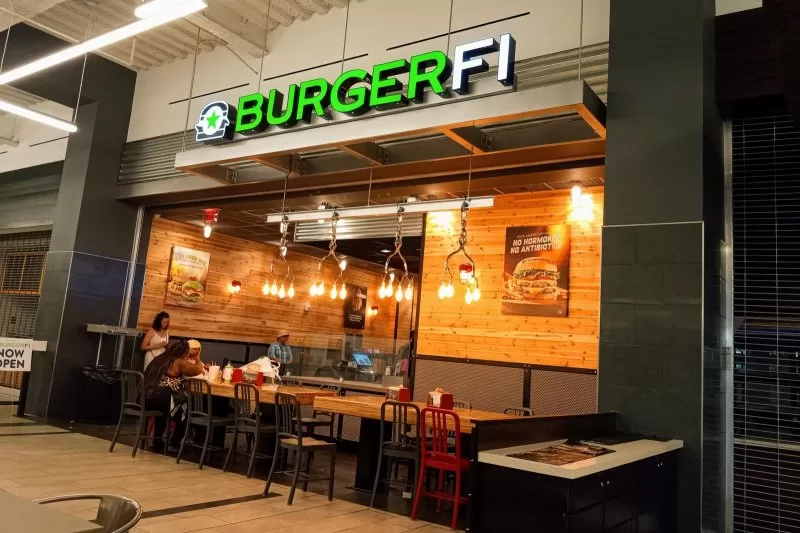BurgerFi revealed Tuesday it “filed voluntary petitions for reorganization under Chapter 11 of the U.S. Bankruptcy Code in order to preserve the value of its brands for all stakeholders.” Photo by David Saddler/
Wikimedia CommonsSept. 11 (UPI) — The BurgerFi restaurant chain joins a number of other companies that have filed for Chapter 11 bankruptcy protection this year, the company said.
On Tuesday, the company revealed it had “filed voluntary petitions for reorganization under Chapter 11 of the U.S. Bankruptcy Code in order to preserve the value of its brands for all stakeholders.”
“Despite the early positive indicators of the turnaround plan initiated less than a year ago, the legacy challenges facing the business necessitated today’s filing,” company CEO Carl Bachmann said Wednesday in news release.
BurgerFi, which also own Anthony’s Coal Fired Pizza & Wings, reported assets of more than $50 million to $100 million and total debt anywhere from $100 million to $500, according to the bankruptcy filing.
There are 144 restaurants under the Florida-headquartered company umbrella, about half of which are franchises. However, the bankruptcy proceedings will only include its 67 corporate-owned locations under the two brands.
“Franchisee-owned locations of BurgerFi and Anthony’s Coal Fired Pizza & Wings are excluded from the bankruptcy proceedings,” the company stated Wednesday.
Months after going public, BurgerFi bought Anthony’s in a $156.6 million deal.
BurgerFi, founded in 2011, went public in 2020 during a special purpose acquisition and joins other public companies and restaurants, such as Red Lobster and Buca di Beppo, which have utilized the broad financial leverage afforded in bankruptcy proceedings to turn business fortunes around.
The Chapter 11 process began in May. Meanwhile, BurgerFi profits have fluctuated over the last two years but the restaurant chain continues to operate at a net loss.
Recently, Nasdaq sent BurgerFi deficiency notices regarding failure to timely file its quarterly report, adding that BurgerFi also failed to seat the proper number of board members after three of its board directors resigned in early August.
Last year in July, BurgerFi’s board hired CEO Bachmann and Christopher Jones as chief financial officer to “turn around and strengthen the brands and operations,” the company said, saying that the two had played a key role in helping the company shore up its negative fortunes.
“As a result,” the company said, BurgerFi “has aligned its footprint with current business standards through the closure of 19 underperforming corporate-owned stores and reduced related operating costs,” going so far as to claim how the chain’s “current platform is primed for success.”
But less than a month ago the company hired a chief restructuring officer after it had warned investors of the “substantial doubt” it had on BurgerFi’s ability to keep operating after reporting $42.9 million in revenue and a $6.5 million net loss for the first quarter which ended April 1.
In the face of a “drastic decline” in “post-pandemic consumer spending amidst sustained inflation and increasing food and labor costs,” the recently-hired company official said, “we need to stabilize the business in a structured process.”
“We are confident that this process will allow us to protect and grow our brands and to continue the operational turnaround started less than 12 months ago and secure additional capital,” Jeremy Rosenthal, BurgerFi International’s new Chief Restructuring Officer, said Wednesday.

